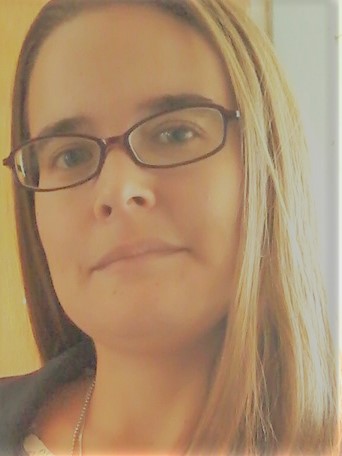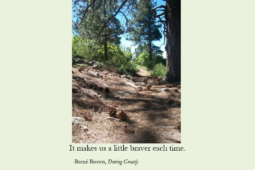I’m sorry, I have to ask. Are you blocking your clarity? Clarity is not only affected by negative thinking. It’s also affected by giving into distractions, perfectionism, and overthinking. I’m learning to decrease these 3 things so that I can maintain a clear mind that acts when I have a great idea or insight.
Distractions
It’s hard though. Just now I had a great idea on what to write and I jumped out of my seat and headed for the kitchen. What was that all about? I didn’t need anything. So I let the dog out and headed back to my computer to write.
Distractions like that wreck clarity. How can I maintain my thoughts and write great things if my first distraction is going aimlessly into the kitchen?
It’s an aimless act, so next I’ll see a cookie and perhaps I’ll impulsively eat it. Or I’ll go for the cheese.
Then I’ll wander back to my chair and instead of starting to write, I might log onto social media and start scrolling. Then I’ll jump to YouTube. Doh. Wasn’t I supposed to be writing?
Distracted from next steps
It works the same way with tasks that are related to finding clarity for next steps. Where’s the brain power to think about possible next steps when instead of brainstorming next steps or taking next steps we let our brain distract us.
It helps if you know what to do to find clarity (career clarity and coping when you lack clarity). If you know what to do, you have a way to redirect yourself to when you find yourself letting in too many distractions.
Am I blocking my clarity? If I let distractions reign, there’s no blog post, or there’s a really unclear blog post.
Are you blocking your clarity? If distractions are in control, your clarity is affected.
You might also say something similar for perfectionism.
Perfectionism
I got this one covered. Now I just need to learn how to let that perfectionism go. There’s something satisfying about the idea of presenting a perfect product. However, can we learn to let the imperfect product satisfy?
The more I learn about acting on the goals I am setting, the more I realize that it’s not about perfection. It’s about getting started.
Think about it from the perspective of a writer.
If I only wrote when I had the perfect words, I would never write. When I write, my clarity comes as I work the words out. I only know what I am going to say as I work it out as I am writing.
This is a helpful concept to remember, because I think we have this idea that clarity means knowing it all and being perfect.
Waiting to be perfect before taking a next step
If I wait till things are perfect before I start, I might not ever start. If I wait for the perfect plan to take shape before I take a step towards my goals, I might not ever take a step. I might not ever realize what the next step is, because I’m hung up on being perfect.
If we wait for perfection, or only want to release something we create when it’s perfect, we could be hindering our clarity on what might come after the step of letting them out into the world.
Am I blocking my clarity? If I let perfectionism control, I would not have launched this website when I did. If I only allowed what is perfect out into the world, I would never have played a live music show and the songs that I’ve written that I’ve posted online would never have been shared. You can listen to them here in all their perfect imperfection.
Are you blocking your clarity? If perfectionism is in control, your clarity is affected.
The results of overthinking are similar to distractions and perfections.
Overthinking
The ability to see things from different perspectives is a good skill. However, when the thinking prevents action or creates fear of what decision to make, it could be due to overthinking.
I’m getting better at stopping myself when I notice I’m overthinking. Yet, to stop overthinking can be difficult. To stop overthinking about something means that you stop trying to control it.
I don’t know about you, but when I’m overthinking it is usually because I am trying to figure it out or control the outcome.
Overthinking instead of acting on next steps
Overthinking when it comes to an area we are looking for clarity in prevents that clarity from happening.
If we constantly think about what the best (dare I say, perfect) next step is we might not ever take a step. If we constantly try to figure out how to control the situation by overthinking everything, we might miss some helpful insights.
Overthinking blocks insights? Think about it. If our brain focuses on figuring something out, or needing to have the answer, or thinking about what could happen, or why something didn’t happen…where is the room for new thoughts and insights?
Am I blocking my clarity? If I’m not backing away from the situation and providing time for quiet, I am at risk of overthinking. If I overthink, I might miss that opportunity to go-go now-when that God sent answer to prayer comes along.
Are you blocking your clarity? If overthinking crowds your mind, your clarity is affected.
Clarity can grow
The good news is that clarity can grow! Let’s start thinking about our lack of clarity in a new way.
Distractions, perfectionism, and overthinking don’t have to have to the last words in our minds. I am learning to allow more opportunities for clarity to grow in my life. You can grow clarity also.
We can learn to manage and minimize distractions. We can learn to let go of being perfect at the expense of hiding ourselves or our work. We can learn to stop overthinking and open ourselves to new and life changing thoughts.
It’s not a lack of clarity. It’s a growing clarity.
Are you ready to start growing more clarity? Share your thoughts in the comment section.
Behavior Challenge: Pick one of the three clarity blockers-distractions, perfectionism, or overthinking. Focus on what you can do to grow your clarity by changing one of the ways that you interact with one of these 3 clarity blockers.




 One behavior change at a time.
One behavior change at a time.







Recent Comments